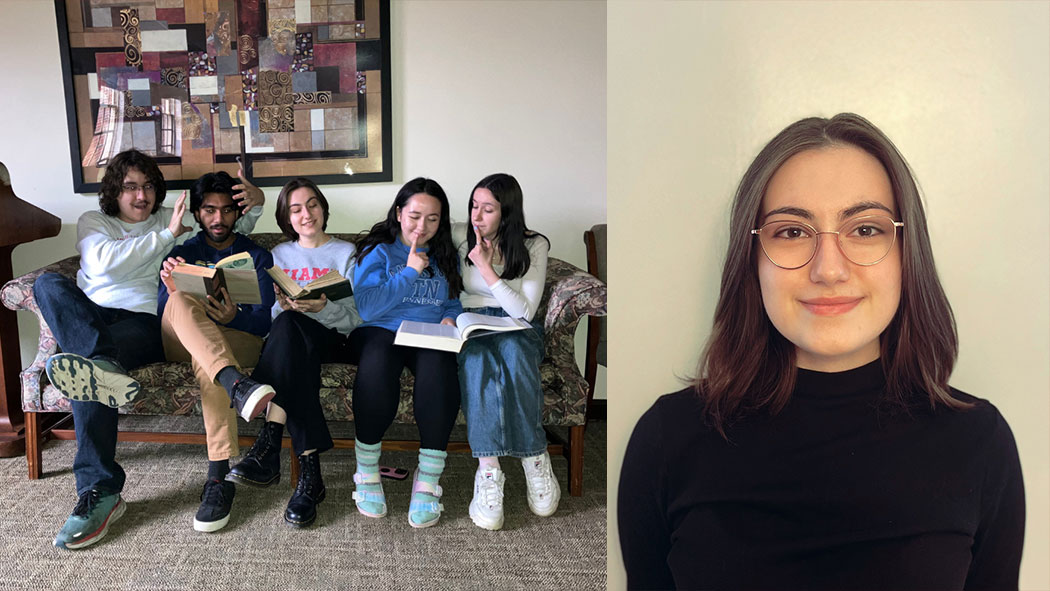Senior double-major is decoding the role of LGBTQ+ characters in today’s popular media through her research project
Callie Meyer ‘24, majoring in both Environmental Science and Professional Writing, is making her mark by analyzing the queer-coded villain in media culture today.

Senior double-major is decoding the role of LGBTQ+ characters in today’s popular media through her research project
With a love for writing essays that few obtain in high school, Callie Meyer decided to major in Professional Writing at Miami and cultivate her skills in writing, editing, proofreading, and effectively analyzing text and media. These skills have not only helped prepare her for a professional career but have found their way into how she consumes her favorite TV shows, prompting her research project.
"My focus is queer-coded villains in movies,” Meyer said. “I kind of had this issue with how queer people were represented in media right now. Sometimes they're queer to be queer and don't have actual personalities."
Queer-coding is a practice in media where a character is not explicitly said to derive from a heterosexual norm. Instead, their sexuality is suggested through stereotypes, mannerisms, or affectations. Whether the intention is an attempt to be representative or to not "offend" by explicitly mentioning sexuality, queer-coding undoubtedly affects the LGBTQ+ community.
Based on her analysis, Meyer has discovered that LGBTQ+ characters are often cast as villains in popular media. She gave examples of shows like Supernatural, which includes multiple queer-coded anti-heroes, and Disney movies, which often feature flamboyant villains such as The Little Mermaid’s Ursula (modeled after the late drag queen Divine). Meyer explained that these characters exist outside of the expected.
“It's important to recognize that queer people shouldn't be tokenized as villains or a totally magnificent person with no flaws,” she said. “Stories affect how people are viewed and how we think about things. I wanted to determine how public opinion might be affected, how these stories might affect people, and how it might affect their writing or opinions and what they create."
Meyer conducted her research project with the help of her faculty advisor, Professor of English Stephanie Dunning. Dunning helped Meyer craft her project, talking her through the process and suggesting examples to explore. In addition to working with Dunning, Meyer reflected on the Undergraduate Summer Scholars program, where professors and students collaborate and share their research and experiences.
"They brought in a lot of researchers and professors from Miami and other places, and we got to talk with them,” Meyer said. “The community aspect is cool. I really loved seeing everybody's work.”
Through the USS program, working under Dunning, and crafting her research project, Meyer’s excitement has grown for a job in the film industry. After graduating from Miami next year, she plans to find a proofreading or copyediting career, particularly one involved with storytelling. Meyer explained that writing for a TV show would be her dream – but, she joked, the backup plan is to go off to Ireland and herd sheep.
Meyer wants her research to serve as a guide to all consumers of media. When watching a movie or TV show, she hopes viewers will take a step back to reflect.
“I’d want them to walk away with an idea of what queer-coding means,” she said. “I want to make them think about these characters and how they’re represented and how they feel about their representation.”
You can find more about Meyer's research at monstrousbodies.com.